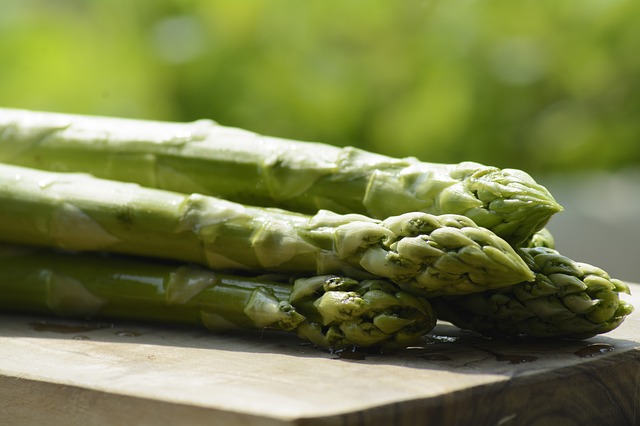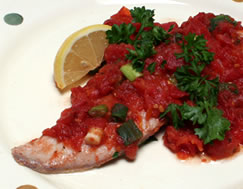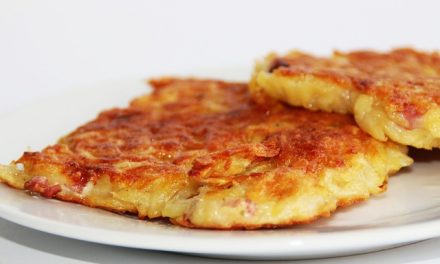Nothing says spring like a plate of asparagus. While asparagus is now available year round, it still seems a special treat in spring.
Asparagus has been a prized food since ancient times. The Greeks ate wild asparagus and the Romans cultivated it in their gardens.
But asparagus did not become a big crop in North America until the end of the 19th century. It has been popular ever since. In addition to its delicate taste, asparagus is high in vitamins A, B and C, and a source of iron and potassium.
Asparagus can be more than a side vegetable. It can be served as an appetizer, a soup, or over pasta. Asparagus salad is another good showcase. In the recipe below, a tart, lemony dressing complements the asparagus without obscuring its natural flavors.
May is National Salad Month, a good time to take a look at alternatives to the typical American salad – a bowl of iceberg lettuce with a few slices of tomato or cucumber.
Try salads made with dark leafy greens and vegetables such as asparagus, broccoli, cauliflower, sweet or hot peppers, carrots, mushrooms and zucchini. The vegetables could be raw, lightly steamed, grilled, or even leftover from a stir-fry.
You don’t need to have a salad every day. But scientific evidence suggests that a mostly plant-based diet is best for preventing both overweight and chronic diseases. Asparagus Salad with Lemon-Soy Sauce would be a good part of such a diet.
Shop for firm, smooth, bright green stalks with tight tips. Wrinkled spears are dried out. Asparagus is often sold in bundles bound with rubber bands. Take the bands off before storing; they make the spears sweat and spoil more quickly.
Since they are grown in sandy soil, rinse the tips well. Asparagus can be kept for three or four days refrigerated. Trim the stems and store asparagus standing upright, like flowers, in a tall glass with about an inch of water, loosely covered with a plastic bag.
Before cooking, trim spears by bending stalks until they break off, usually at the woody, inedible part of the spears. Use stalks of a uniform thickness so they cook evenly.
Asparagus Salad with Lemon-Soy Sauce
Makes 4 servings.
Ingredients
- 1-1/4 lbs. thin asparagus stalks, cut diagonally into 1 1/2-inch lengths
- 8 whole scallions, trimmed to include a little green
- 5 scallions, trimmed to include a little green, minced and divided in 2 batches
- 1 Tbsp. canola oil
- 1/4 tsp. fresh ginger, minced (or a dash of ground ginger)
- 1/2 cup fat-free, reduced-sodium chicken broth
- 1 Tbsp. rice vinegar
- 1 tsp. reduced-sodium soy sauce
- 1/2 tsp. sugar
- Freshly ground black pepper, to taste
- 1 tsp. lemon juice, or to taste
Directions
- Steam asparagus and 8 scallions in a steam basket over boiling water (or in the microwave, with a small amount of water) until crisp-tender, about 5 minutes. Rinse with cold water to stop the cooking and set color. Drain and cool.
- To make the dressing, heat oil in a small saucepan over medium-high heat. Add ginger and stir until it begins to color. Add half the minced scallions and cook a few seconds. Add broth, vinegar, soy sauce and sugar. Set aside.
- Just before serving, place the remaining minced scallions in a large bowl. Add steamed asparagus and scallions. Bring the dressing to a boil over medium-high heat. Let boil 30 seconds. Gradually stir in pepper and lemon juice, tasting, to achieve an appealing tart and peppery flavor. Toss the vegetables with the dressing.
Per Serving:
86 calories,
5 g. total fat (less than 1 g. saturated fat),
10 g. carbohydrate,
5 g. protein,
2 g. dietary fiber,
538 mg. sodium
Diabetic Exchanges: 2 Vegetable, 1 Fat







